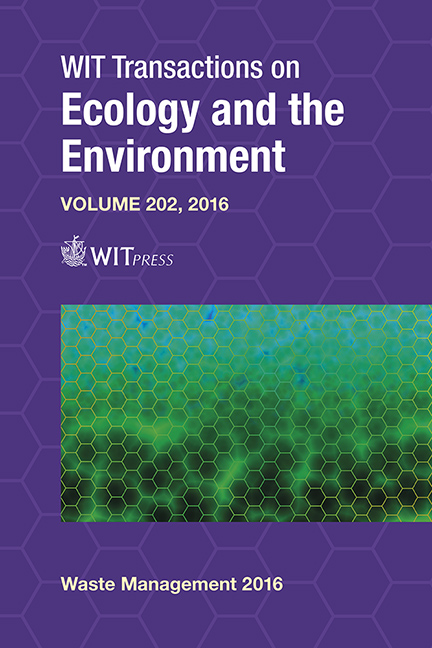Understanding Recycling Behavior: A Study Of Motivational Factors Behind Waste Recycling
Price
Free (open access)
Transaction
Volume
202
Pages
14
Page Range
401 - 414
Published
2016
Size
401 kb
Paper DOI
10.2495/WM160361
Copyright
WIT Press
Author(s)
K. Johansson
Abstract
Globally, waste volumes are increasing rapidly and the World Bank estimates a 70% global increase in municipal solid waste up to 2025. Waste may have serious environmental consequences and there is a strong correlation between solid waste generation rates and greenhouse gas emissions. These two observations alone indicate that this development is not sustainable. Recycling is one of the most important actions currently available to reduce the environmental impact of waste. While, waste recycling in OECD countries is reported to be approximately 22% on average, many developing countries have recycling rates in the range of 1–3%. A key aspect in succeeding with any recycling effort is how authorities and other actors relate to both informal and formal waste workers. This paper reports on the findings of a systematic literature study with the aim of exploring waste recycling behavior, with a special focus on motivational factors, both physical and psychological, behind recycling. Three levels of descending importance for recycling have been identified, where two are vital for success, and the third is desirable; 1) a well-designed infrastructure for recycling 2) specific recycling knowledge, and, 3) a general understanding of environmental aspects. Any attempt to implement or improve recycling systems and/or recycling behavior, needs to consider these aspects and the insights gained through this research may provide decision makers with practical assistance. The paper also contributes by providing academia with a framework for further studies on the behavioral aspects of recycling.
Keywords
behavior, motivational factors, recycling, waste management





